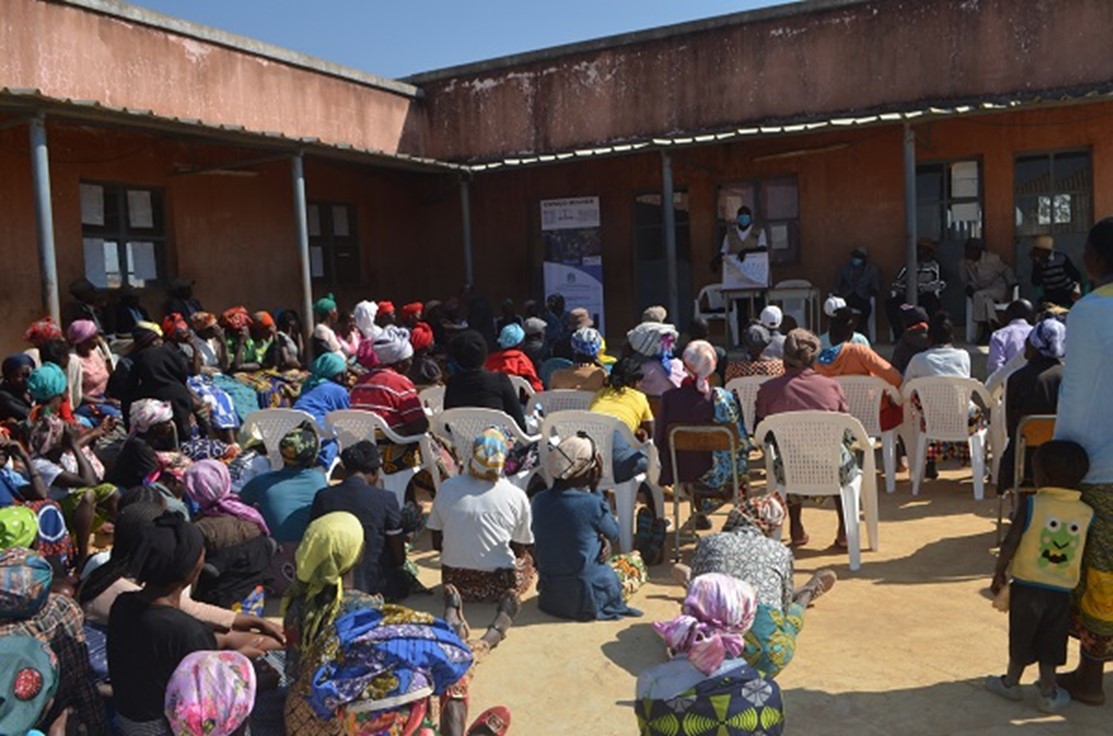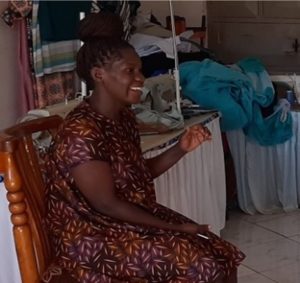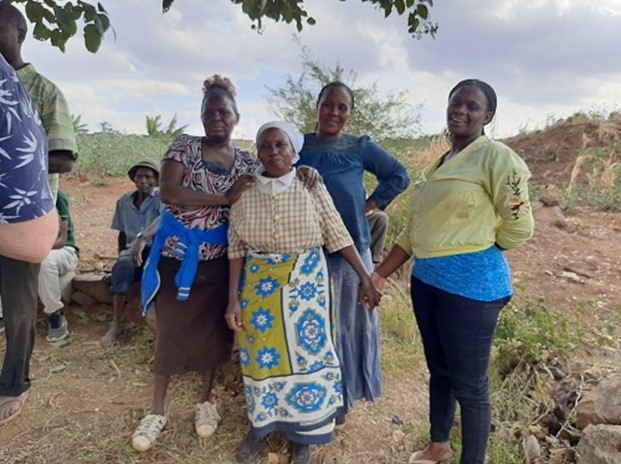The successful start of the 2021-26 Women’s Spaces: Implementing Equal Rights to Land, Housing and Livelihoods in Sub-Saharan Africa (SSA) project took place early in 2022 in partnership with HIC Members African organizations : Development Workshop Angola, Mazingira Institute Kenya, Shelter and Settlements Alternatives Uganda and the Socio-Economic Rights Institute of South Africa. The goal of this ground-breaking initiative co-funded by Global Affairs Canada and Rooftops Canada is to secure equal rights for women to use and control housing and related resources.
The Women’s Spaces project will contribute to poverty reduction and deliver meaningful change to poor and vulnerable women and girls living in urban and peri-urban informal settlements through its ultimate outcome “enhanced implementation of women’s equitable rights to and control over land, housing and livelihoods in urban environments in SSA.” The initiative will allow women to better provide for their families and respond to challenges such as gender-based violence, health emergencies, and political upheaval. Women will also be freer to use their homes and the space around them for income-generating activities, including food production.
Women’s Spaces on the ground
The experience and credibility of the project’s SSA implementing partners is key to this initiative. Their positive relationships with national governments and local authorities will be built upon and extended to include community participation, especially by women. Partners in each country completed a comprehensive gender analysis to contextualize and inform key project activities. Partners were also active in obtaining necessary government approvals and engaging with local stakeholders and communities. The first in-person meeting of project partners from all four African countries implementing Women’s Spaces took place in September 2022.

Women spaces project
In Angola, Development Workshop, has already organized a forum to launch the project that included 150 representatives from provincial, municipal and traditional authorities, civil society and community organizations. Over 500 people also participated in five local sessions to examine Angola’s land laws from a gender perspective.
In Kenya, Mazingira Institute inaugurated Women’s Spaces through a forum with representatives of the Nairobi city administration, local urban farmers, academia, civil society, research organizations and the Canadian High Commission. In South Africa, our partner Socio-Economic Rights Institute of South Africa, held a series of consultative workshops in informal settlements and conducted introductory meetings with national policymakers. In Uganda, Shelter and Settlements Alternatives, has secured Memorandums of Understanding in two districts where the project is starting. These agreements recognize government support and facilitate access to communities – a significant first step to implement Women’s Spaces.
The Ebenezer Lugonjo Bag-Making Group: Wakiso – Entebbe District, Uganda

In Uganda, our partner Shelter and Settlements Alternatives is helping provide a voice for groups like The Ebenezer Lugonjo Bag-Making Group that try to effect change beyond the community level. The Group was formed in 2019 to give women and men a platform for generating revenue through crafting unique and colourful bags. The group holds weekly meetings to discuss member achievements and challenges. Discussions often focus on the violation of women’s rights in purchasing and owning property. Physical and sexual violence and the infringement of children’s rights are also debated.
Improving household income and nutrition of the women farmers of the Kibera slum

These women are a group of 68 farmers who live in the Kibera slum in Nairobi, Kenya are part of the project, and farm on land owned by the railway. To improve household income and nutrition, Women’s Spaces will work with these industrious women to help secure their use of the land.
The gender equity gap in the access to land
In SSA, formal gender equality in land, housing and related livelihoods has improved with the adoption of gender positive constitutions, laws and international commitments such as the SDGs and the New Urban Agenda. In practice, a large gender equality gap remains – implementing women’s legal rights in the face of entrenched traditional attitudes and practices. This requires action at all levels related to: distinct land and housing tenures; links to other laws related to marriage and inheritance; environmental stewardship; and, challenging male dominated hierarchies of power and decision-making. Through this initiative, partners and participants in Angola, Kenya, South Africa and Uganda will develop sustainable responses to these cross-sectoral challenges. Testing country-specific practices and adapting them through the project’s multi-country framework will contribute to comprehensive understanding and generate new gender-responsive policies and solutions that will be shared regionally and globally. The project is fully aligned with Canada’s Feminist International Assistance Policy and will help inform its National Housing Strategy by providing opportunities for Canadians to share experiences with others working to secure land and housing for vulnerable populations, particularly through a gender-focused and intersectional lens.
Rooftops Canada will collaborate with Habitat International Coalition, working closely with the Housing Land Rights Network. For more information, please see www.rooftops.ca